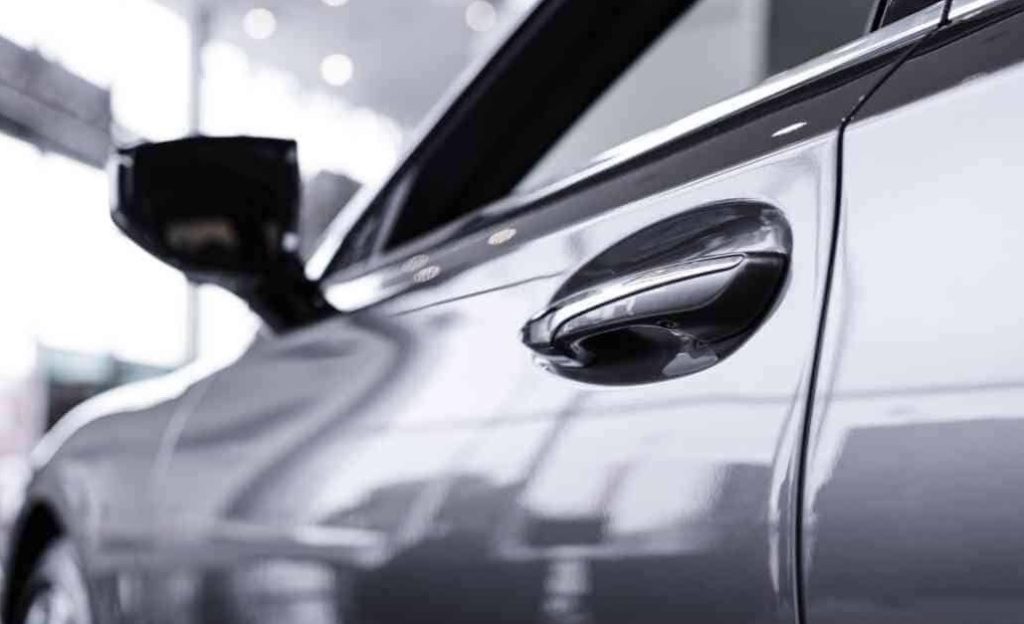In the realm of car care, enthusiasts are constantly seeking effective and wallet-friendly ways to keep their vehicles looking pristine. One debated topic that frequently arises in this quest for the perfect car-care routine is the use of white vinegar on car paint. In this comprehensive article, we aim to delve deeper into the myths, facts, and best practices surrounding this widely discussed but often misunderstood practice.
Table of Contents
- Understanding the Concerns
- Dispelling Common Myths
- Potential Risks and Precautions
- Best Practices for Car Paint Care
- Real-Life Experiences
- Protective Measures for Car Owners
- Expert Tips: Safeguarding Your Car Paint from Potential Vinegar Risks
- FAQs: Navigating the White Vinegar Conundrum for Car Paint
- 1. Is White Vinegar Safe for All Car Paint Types?
- 2. How Should I Dilute White Vinegar for Car Cleaning?
- 3. Can White Vinegar Cause Paint Discoloration?
- 4. Are There Safer Alternatives to White Vinegar for Car Cleaning?
- 5. How Often Can I Safely Use White Vinegar on My Car?
- 6. Can White Vinegar Damage Clear Coats?
- 7. Is It Safe to Apply White Vinegar in Direct Sunlight?
- 8. Do I Need to Apply a Protective Wax After Using White Vinegar?
- 9. Can I Use White Vinegar on Scratched or Damaged Paint?
- 10. What Should I Do if I Notice Signs of Damage After Using White Vinegar?
- Conclusion
Understanding the Concerns
1. The White Vinegar Dilemma
White vinegar has long been championed as a household staple for its cleaning prowess. However, when it comes to car paint, the line between its benefits and potential harm can be blurry. We’ll closely examine the claims on both sides of the spectrum, aiming to provide clarity on whether white vinegar is a friend or foe to your vehicle’s exterior.
2. The Chemistry Behind It
To truly understand the impact of white vinegar on car paint, we must explore the chemical reactions that occur. Breaking down the science behind the solution will empower car owners to make informed decisions about its use and potential consequences.
Dispelling Common Myths
3. Myth: White Vinegar is a Miracle Cleaner
Many believe that white vinegar is a panacea for all cleaning needs, but is it the best choice for your car? We unravel the myth of white vinegar as a universal cleaner and present alternative methods that might be more suitable for maintaining a spotless finish.
4. Myth: Vinegar is Completely Safe for All Paint Types
Car paints vary, and not all are created equal. We explore the nuances of different paint finishes and how they may react to white vinegar, helping readers identify their car’s paint type and make decisions accordingly.
Potential Risks and Precautions
5. Acidic Impact on Clear Coats
One of the primary concerns when using white vinegar on car paint is its acidic nature and its potential to damage clear coats. We’ll discuss the chemistry behind this risk and provide insights into identifying early signs of damage, along with preventive measures.
6. Avoiding Paint Discoloration
While vinegar is renowned for its cleaning abilities, its use might come at a cost—paint discoloration. We explore the risk factors associated with discoloration and offer tips on how to prevent it, ensuring your car maintains its aesthetic appeal over time.
Best Practices for Car Paint Care
7. Choosing the Right Cleaning Agents
Not all cleaning agents are created equal, especially when it comes to automotive care. We delve into car-friendly alternatives to white vinegar, exploring the ideal products that effectively clean without compromising your vehicle’s exterior.
8. Proper Application Techniques
Cleaning your car is an art, and using the right techniques is crucial for preserving its exterior. From selecting the right cleaning tools to employing effective application techniques, we provide a comprehensive guide for ensuring your car’s paint remains flawless.
Real-Life Experiences
9. User Stories: The Good, the Bad, and the Surprising
To add a human touch to our exploration, we share real-life experiences from car enthusiasts who have experimented with white vinegar. These stories provide valuable insights into the diverse outcomes of this unconventional practice, offering readers a glimpse into the potential results they might achieve.
Protective Measures for Car Owners
10. Investing in Quality Car Wax
Beyond discussing potential risks, we present a proactive approach to safeguarding your car’s paint job. Investing in quality car wax can act as a protective shield, and we recommend reputable products for optimal results. (See Also: Is RainX Bad for Your Car Paint? Unveiling the Truth About RainX and Auto Paint Damage)
11. Regular Maintenance Routines
Maintaining your car’s exterior is an ongoing process. We emphasize the importance of regular maintenance routines, highlighting simple yet effective steps that can significantly contribute to the longevity of your vehicle’s paint job.
Expert Tips: Safeguarding Your Car Paint from Potential Vinegar Risks
White vinegar can be a double-edged sword when it comes to car paint care. While some swear by its cleaning abilities, others warn of potential risks. To ensure your vehicle remains in top condition, consider these expert tips:
1. Dilution Is Key
Before applying white vinegar to your car, dilute it with water. This reduces its acidity, minimizing the risk of damage to your car’s paint and clear coat.
2. Test in an Inconspicuous Area
Always conduct a patch test in a hidden spot before applying white vinegar to the entire surface. This helps you gauge how your car’s paint will react to the solution.
3. Limit Frequency of Use
Using white vinegar sparingly is crucial. Frequent application may increase the risk of damage over time, so incorporate it into your cleaning routine judiciously.
4. Rinse Thoroughly
After applying white vinegar, ensure you rinse your car thoroughly with water. This helps remove any residue and minimizes the chances of long-term damage.
5. Apply a Protective Wax Coat
Adding a protective wax coat acts as a barrier, shielding your car’s paint from potential harm. Invest in a quality car wax and apply it regularly for added protection.
6. Avoid Direct Sunlight
Applying white vinegar in direct sunlight can exacerbate its effects on your car’s paint. Opt for a shaded area to minimize the risk of accelerated damage.
7. Use Microfiber Cloths
When cleaning your car, opt for soft microfiber cloths instead of abrasive materials. This reduces the chances of micro-scratches and maintains your paint’s glossy finish.
8. Invest in pH-Neutral Cleaners
Explore alternative cleaning solutions with a pH-neutral formula. These are gentler on your car’s paint while still providing effective cleaning results. (See Also: Will Antifreeze Hurt Car Paint? Protecting Your Vehicle’s Finish)
9. Regular Inspection
Regularly inspect your car’s paint for any signs of damage or discoloration. Catching issues early allows for prompt corrective action.
10. Consult Professional Detailers
When in doubt, seek advice from professional car detailers. They can provide personalized recommendations based on your specific car model and paint type.
Remember, a cautious approach and proactive measures are your best allies when using white vinegar for car paint care. By following these expert tips, you can enjoy the benefits of white vinegar without compromising your vehicle’s aesthetic appeal.
Curiosity often accompanies the quest for the ideal car-care routine, especially when it involves unconventional methods like white vinegar. Let’s address some frequently asked questions to shed light on the nuances of using white vinegar on car paint.
1. Is White Vinegar Safe for All Car Paint Types?
White vinegar may not be universally safe for all car paint types. It’s essential to identify your car’s paint finish and conduct a patch test before widespread application.
2. How Should I Dilute White Vinegar for Car Cleaning?
Experts recommend diluting white vinegar with water before use. A common ratio is one part white vinegar to ten parts water, reducing its acidity and potential impact on your car’s paint.
3. Can White Vinegar Cause Paint Discoloration?
Yes, prolonged or undiluted use of white vinegar may lead to paint discoloration. It’s crucial to apply the solution judiciously and rinse thoroughly to minimize this risk.
4. Are There Safer Alternatives to White Vinegar for Car Cleaning?
Yes, several car-friendly alternatives exist, such as pH-neutral cleaners. These provide effective cleaning without the potential risks associated with white vinegar.
5. How Often Can I Safely Use White Vinegar on My Car?
Using white vinegar sparingly is recommended—excessive application may increase the risk of damage. Consider incorporating it into your car-cleaning routine no more than once a month. (See Also: How Often Should You Wax Your Car with Meguiar’s? Ultimate Guide)
6. Can White Vinegar Damage Clear Coats?
The acidic nature of white vinegar poses a risk to clear coats. Dilution, careful application, and prompt rinsing are essential to minimize potential damage.
7. Is It Safe to Apply White Vinegar in Direct Sunlight?
Applying white vinegar in direct sunlight can intensify its effects on car paint. Choose a shaded area for application to reduce the risk of accelerated damage.
8. Do I Need to Apply a Protective Wax After Using White Vinegar?
Yes, applying a protective wax coat is advisable. Quality car wax acts as a barrier, safeguarding your car’s paint from potential harm and enhancing its overall protection.
9. Can I Use White Vinegar on Scratched or Damaged Paint?
Avoid using white vinegar on scratched or damaged paint, as it may exacerbate existing issues. Consult a professional for appropriate solutions to address specific paint concerns.
10. What Should I Do if I Notice Signs of Damage After Using White Vinegar?
If you observe signs of damage, such as discoloration or deterioration, cease using white vinegar immediately. Consult a professional car detailer for guidance on corrective measures.
Navigating the use of white vinegar on your car’s paint requires a thoughtful approach. By understanding these frequently asked questions, you can make informed decisions to preserve your vehicle’s aesthetic appeal.
Conclusion
In this extensive exploration, we’ve debunked myths, outlined potential risks, and provided practical tips for maintaining your car’s paint job. Armed with this knowledge, car owners can make informed decisions about the use of white vinegar in their car-care routines. As we conclude, the question lingers: Does white vinegar damage car paint? The answer, intricately woven into the details, empowers car enthusiasts to keep their vehicles looking their best. By understanding the complexities, you can confidently navigate the choices in your car-care arsenal.



